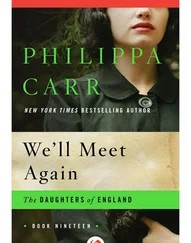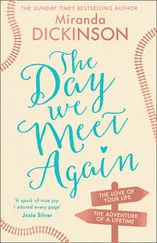I have reasons for not wanting to mention my friend’s name, first or last. (Last even less than first.) It will suffice to say that after Mother died, I took her Singer over to my friend’s house along with a pile of half-necessary, mostly Soviet books that wouldn’t fit in my apartment. Our friendship was cemented by three years of working at the same journal, and is, nowadays, a relationship of absolute trust. Yet, our goals, our opinions of men, stockings, hobbies, perfumes — none of it matches. She used to say: of all the wines in the world, brandy is the best, and she used to call that Russian company out to gobble up Lithuania’s one oil refinery “Fuckoil.” She was a fan of Coco Chanel, but she would intentionally mispronounce it as “Sinel,” the word for the rough homespun coats worn in Siberia. Instead of saying “make love” she’d say “lie down next to.” My husband couldn’t stand to be around her because he hates rude women who smoke, not to mention corny jokes. I, on the contrary, have an affinity for corny women and rude jokes. I would frequently walk through the Old Town with her in the rain. Unless there had been some catastrophe, or one of us needed some important advice from the other, we never really called. Although, actually, sometimes she’d call me for no reason at all, but then only very late at night. I would pick up, and, after taking a smoker’s pause, my friend would ask without preamble if I knew what paella was, or what the English word was for a business where you could hock an antique white-gold ring with an emerald setting — who knows what it was all about, maybe she did crossword puzzles when she couldn’t sleep. I liked the way she always mixed up her prepositions, telling me how one of her rich Pavilnys neighbors “dressed out and went up.” Sometimes, when I called her, she would hang up on me almost immediately, first explaining that she didn’t see any sense in life today, and I knew it was useless to pry — it would just make her mad. Once, when we’d only recently met, I invited her to go to the movies. She refused: “I haven’t been to the movies in twenty years and I won’t break the tradition. The last good movie I didn’t see was Fellini’s And the Ship Sails On .”
At the time, I wrote for the journal we both worked at, while my friend was an accountant. They threw her out, supposedly because they’d discovered she never finished her college degree, but actually because of her endless sick days. First they cut off one of her breasts, then the other. Now she doesn’t do anything, she just waits. For a spot to appear on her lungs. And it was around the time her husband left her for a colleague who could provide solace from all his family’s misfortunes. Perhaps there’s no need to condemn him — when their wives become ill, husbands take forever to recover. I won’t call his lover names, either — she sincerely wanted to help. People say excessive empathy is a mark of exceptional delicacy. When I visited my friend in the hospital, she would scribble letters on toilet paper, put them in envelopes, seal them, and give them to me to drop in a mailbox. They bore the name and address of a man I didn’t know, as well as the words “Open when necessary.” When they discharged her from the hospital, we waited for a taxi together in Santarišk  s for about an hour. My friend sat on a bench and looked at a bush blooming with exceptionally bright, yellow spring flowers. At that time of year, those bushes are usually the only impudently bright plant on the otherwise completely green background of spring. She asked me: “How do you measure your life?” I answered, in my daughter’s age and height. “I measure mine in seconds,” she said. I said, don’t be upset, people go on living without their legs, arms, or memories. And a good number walk around without hearts, and never even know it. My friend smiled: “It doesn’t make me feel better just because I know that someone else has it worse.” After thinking it over, I realized why she never went to the movies. You couldn’t sit through them if you really counted your way through life second by second, as my friend claimed she did. No, you’d stare up at the screen, dividing hours into minutes, minutes into seconds, seconds into half- or quarter-seconds, never getting caught up with the plot or the characters’ problems. It would be a joyless endeavor.
s for about an hour. My friend sat on a bench and looked at a bush blooming with exceptionally bright, yellow spring flowers. At that time of year, those bushes are usually the only impudently bright plant on the otherwise completely green background of spring. She asked me: “How do you measure your life?” I answered, in my daughter’s age and height. “I measure mine in seconds,” she said. I said, don’t be upset, people go on living without their legs, arms, or memories. And a good number walk around without hearts, and never even know it. My friend smiled: “It doesn’t make me feel better just because I know that someone else has it worse.” After thinking it over, I realized why she never went to the movies. You couldn’t sit through them if you really counted your way through life second by second, as my friend claimed she did. No, you’d stare up at the screen, dividing hours into minutes, minutes into seconds, seconds into half- or quarter-seconds, never getting caught up with the plot or the characters’ problems. It would be a joyless endeavor.
Shortly afterward, they fired me as well. It’s funny … If I had to say why, I’d say: because I couldn’t live without Stilius , the fashion magazine. I’ve read it from volume one, issue one. It makes everything look so sexy and new, and everything — children, glasses of champagne, puppies, flowers, toothbrushes in people’s hands — look so happy. It particularly pleases me that many of the people featured in its pages are involved with charities — spreading kindness (and money) throughout the world. They arrange meetings with one another at the opera and dine leisurely on stone terraces overgrown with climbing plants; before sleeping together, they massage each other with oil, and then make love as lightly and softly as organza. As long as I was turning the pages of that magazine, I really did believe that time could stop. That I could greet spring, carefree and beautiful. That I could greet it, period. In one of its earliest issues, I found the following advice (other magazines of that era — all of them behind the times — wouldn’t even mention the horror of cellulite): “If you notice that the skin in the area around your thighs and seat is sagging, don’t be frightened. Do an experiment — it costs nothing. With the dull end of a pencil, poke yourself in the bottom; if an dimple remains, you should be concerned.” Next to this article was a photo of a dimpled orange peel, the name of a cream, and a picture of a woman who resembled Andie MacDowell. As I was looking at all of that, my editor, with one knee on her desk, was opening up a window. We were sitting with our graphic designer in an Old Town attic space, in front of a fan that wasn’t doing a thing to make the heat more bearable. Completely spontaneously, and clearly without giving it any thought, I reached out and poked the dull end of a pencil in my editor’s behind, and, before she came to her senses, lifted up her silk skirt — to find that there was a depressed dimple clearly visible on her sweaty bottom. But they couldn’t fire me just for that … they had to think up something better. Thus, according to them, I left intact — and with malice aforethought — a rather unfortunate typo in an interview with the wife of a well-known politician (“ruling party” having become “ruling farty”).
After the sixth ring, my friend picked up the phone in her kitchen.
“Today I’m not feeling very well. But fine, let’s talk.”
I heard her running water from the tap, dropping a metal implement, pouring something that gurgled as it went. Clearly she was holding the telephone pressed to her ear with her shoulder.
“Can I ask you something?” I began. “I know you’ve already been thinking it over, so please don’t take this the wrong way … but, where do you want to be buried?”
Her voice immediately took on an economist’s coldness: “Listen to me. Don’t let yourself confuse the remodeling of your apartment with a disaster. Don’t look at old photographs before you go to sleep. Or new movies. Don’t lounge around in bed with your cat the way you would with a person. Better go and drink some brandy. On top of whatever you’re already drinking.”
I immediately took this the wrong way: “When I get upset, I drink white wine or nothing.”
My friend said, “Sure, and the day I catch you drinking ‘or nothing,’ I’ll make sure to get it on camera. Look: I’ve got a will. I wrote it after my operation, while I was waiting for the next spot to appear, on my lungs or liver. I want to be cremated.”
Читать дальше

 s for about an hour. My friend sat on a bench and looked at a bush blooming with exceptionally bright, yellow spring flowers. At that time of year, those bushes are usually the only impudently bright plant on the otherwise completely green background of spring. She asked me: “How do you measure your life?” I answered, in my daughter’s age and height. “I measure mine in seconds,” she said. I said, don’t be upset, people go on living without their legs, arms, or memories. And a good number walk around without hearts, and never even know it. My friend smiled: “It doesn’t make me feel better just because I know that someone else has it worse.” After thinking it over, I realized why she never went to the movies. You couldn’t sit through them if you really counted your way through life second by second, as my friend claimed she did. No, you’d stare up at the screen, dividing hours into minutes, minutes into seconds, seconds into half- or quarter-seconds, never getting caught up with the plot or the characters’ problems. It would be a joyless endeavor.
s for about an hour. My friend sat on a bench and looked at a bush blooming with exceptionally bright, yellow spring flowers. At that time of year, those bushes are usually the only impudently bright plant on the otherwise completely green background of spring. She asked me: “How do you measure your life?” I answered, in my daughter’s age and height. “I measure mine in seconds,” she said. I said, don’t be upset, people go on living without their legs, arms, or memories. And a good number walk around without hearts, and never even know it. My friend smiled: “It doesn’t make me feel better just because I know that someone else has it worse.” After thinking it over, I realized why she never went to the movies. You couldn’t sit through them if you really counted your way through life second by second, as my friend claimed she did. No, you’d stare up at the screen, dividing hours into minutes, minutes into seconds, seconds into half- or quarter-seconds, never getting caught up with the plot or the characters’ problems. It would be a joyless endeavor.










